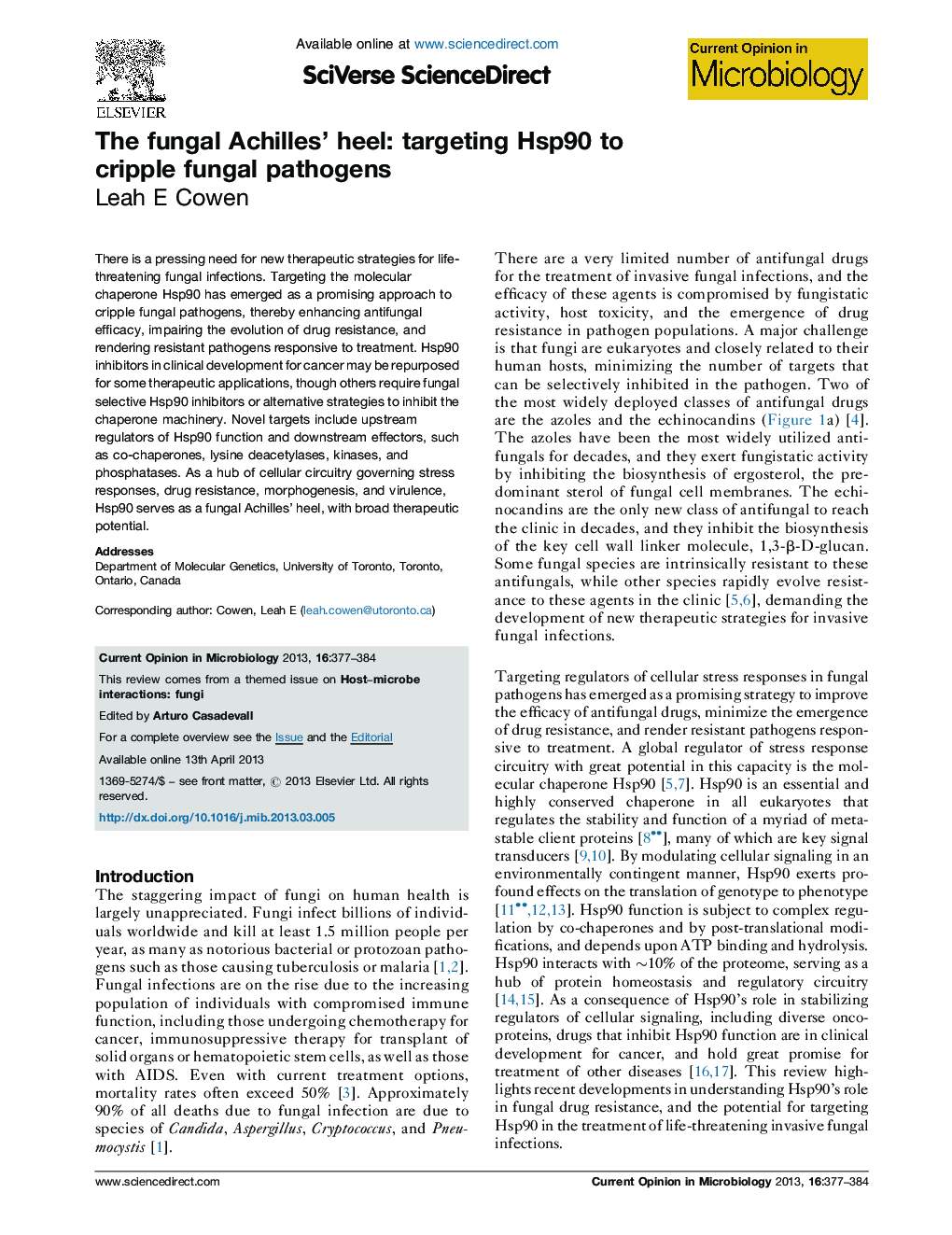| Article ID | Journal | Published Year | Pages | File Type |
|---|---|---|---|---|
| 6132234 | Current Opinion in Microbiology | 2013 | 8 Pages |
Abstract
There is a pressing need for new therapeutic strategies for life-threatening fungal infections. Targeting the molecular chaperone Hsp90 has emerged as a promising approach to cripple fungal pathogens, thereby enhancing antifungal efficacy, impairing the evolution of drug resistance, and rendering resistant pathogens responsive to treatment. Hsp90 inhibitors in clinical development for cancer may be repurposed for some therapeutic applications, though others require fungal selective Hsp90 inhibitors or alternative strategies to inhibit the chaperone machinery. Novel targets include upstream regulators of Hsp90 function and downstream effectors, such as co-chaperones, lysine deacetylases, kinases, and phosphatases. As a hub of cellular circuitry governing stress responses, drug resistance, morphogenesis, and virulence, Hsp90 serves as a fungal Achilles' heel, with broad therapeutic potential.
Related Topics
Life Sciences
Immunology and Microbiology
Microbiology
Authors
Leah E Cowen,
